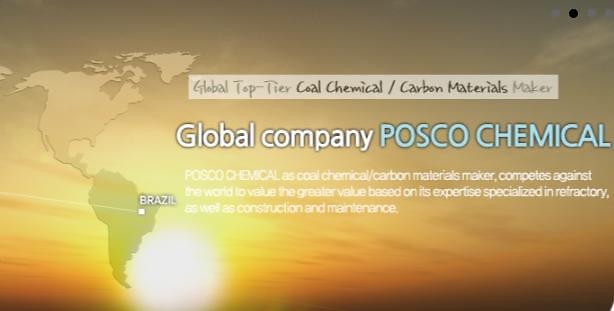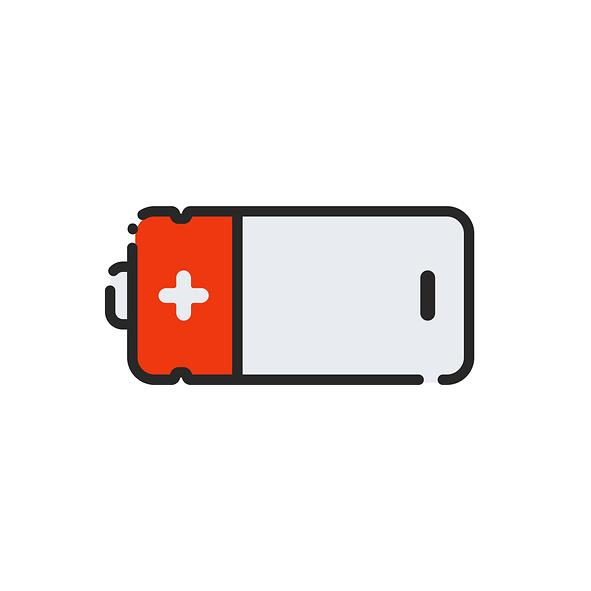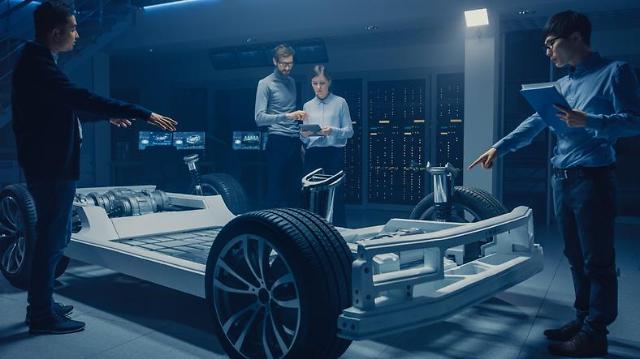
[Courtesy of Posco Chemical]
SEOUL -- South Korea's steel group Posco presented the goal of becoming a top player in the global battery material market by speeding up the completion of a value chain to produce some 220,000 tons of lithium and 100,000 tons of nickel by 2030. It targets a global market share of 20 percent.
The steel group, which regards battery materials as its next growth engine, vowed to achieve annual sales of 23 trillion won ($20.9 billion) in secondary battery materials by 2030. "We are the only company in the world that has a secondary battery material supply system," said Posco chairman Choi Jeong-woo.
"Based on differentiated competitive advantages, we will foster secondary battery materials as the world's best business," Choi said, adding the steel group would expand the supply of core raw materials and secure graphite mines in Africa and Australia in order to reduce its heavy dependence on China.
Posco Chemical, a leading company in coal chemistry and carbon materials, has spearheaded the steel group's strategy to produce high-purity nickel, develop materials for "all-solid-state" batteries and extract valuable minerals from waste batteries.
Automakers want premium long-lasting batteries. South Korea's Hyundai auto group has been interested in solid-state battery technology developed by Samsung researchers for next-generation electric vehicles. A solid-state battery uses solid electrodes and a solid electrolyte, instead of liquid or polymer gel electrolytes. Compared to flammable liquid electrolytes, solid-state batteries have a lower risk of catching fire. With solid-state batteries, faster charging, higher voltage and longer cycle life are possible.
Electric vehicle batteries use chemical energy stored in rechargeable battery packs. Valuable materials in battery packs can be recovered and recycled. South Korean battery makers have developed technologies that can recover key materials in higher purity from spent batteries.
Posco Chemical has set up a research center in the southeastern port city of Pohang to develop high-capacity anode and cathode products and new technologies. The cathode is an electrode from which a conventional current leaves a polarized electrical device, while the current enters into a polarized electrical device through an anode.
Posco Chemical made a paid-in capital increase of one trillion won in early November to invest in materials after it secured a three-year contract worth $1.6 billion to supply high-nickel materials to LG Chemical, which has tried to produce a new type of efficient batteries with a longer life than conventions ones, such as NCM 811 that contains nickel, cobalt and manganese.
The proportion of nickel in NCM 811 is high so that battery producers can save costs and extend the driving range. Cobalt, an expensive rare-earth element widely used in lithium-ion batteries, is vulnerable to sudden price fluctuations.
In December 2019, the company signed an investment agreement to build production facilities for synthetic graphite materials that have a stable crystal structure to enhance the performance of batteries, compared to natural graphite.
Copyright ⓒ Aju Press All rights reserved.

![[FOCUS] Experts recommend non-intervention in battery fight only for a while](https://image.ajunews.com/content/image/2019/10/01/20191001154039423804.jpg)


View more comments